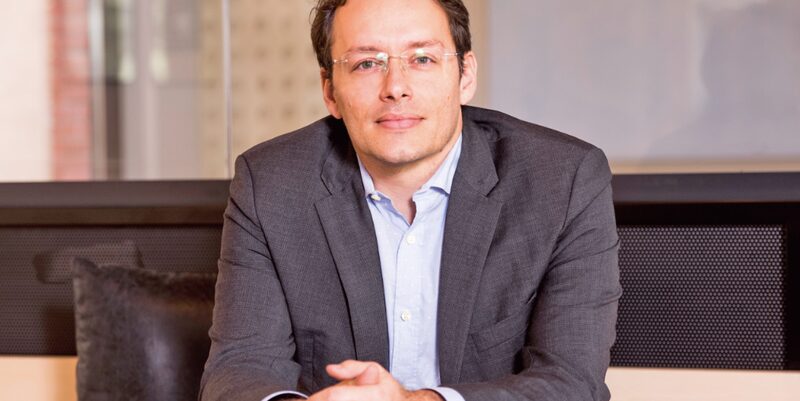Bloomberg Línea — “The Brazilian entrepreneur is the most resilient in the world. Whoever faces the instabilities in Brazil builds a shell that has to be leveraged to several markets,” Cesar Carvalho, CEO of Gympass, said on Tuesday during Endeavor’s event for scale-ups in São Paulo.
But building the $2.2 billion global company almost failed, he recounted.
Carvalho recalled how, at 3 o’clock in the afternoon of a Sunday in February 2020, Gympass’s co-founder , João Barbosa, called Carvalho from Italy, where he was living as the company expanded into that market, to say he was fleeing the country. He drove to Switzerland to get a flight to Brazil before the borders closed due to the lockdowns imposed to curb the spread of Covid-19.
At that time, the Gympass business relied on in-person visits to gyms. “Our product practically didn’t exist anymore. It was a nightmare. What was I to do with it? Get out of bed and solve the problem”, he said.
In order to save the business in Italy, one of the first great epicenters of the pandemic, after China, Gympass had one month to prepare. On the Monday, Carvalho decided to split the team into two teams. One-half would focus on the defense of the business by devising processes to reduce costs, while the other would think about attack: how to play the new game and win.
“When you give a clear mission to the team, it’s very beautiful what the team produces,” Carvalho said.
Gympass’ digital product fitted like a glove for companies that were sending their employees to remote work and didn’t know how to engage the team. “The team took the digital pilot we had and took the partnerships with the apps to all markets. As everyone had to change habits in the pandemic, there was a need for coaches to navigate these transitions,” he said.
Now, in a scenario where investors fear a recession in the United States, Carvalho says entrepreneurs need to “normalize uncertainty”.
“There are entrepreneurs who haven’t gone through this yet, but these are cycles that happen. If you normalize this and consider it as part of the game it becomes easier”.
Carvalho says the best thing a CEO can do in a moment of uncertainty is to be transparent with the team.
“It’s talking about what you know and what you don’t know, and trying to get the leadership team to share the burden that the CEO has. If it’s just one person who is carrying all the weight on their back, the chance of that person missing the opportunity or not absorbing feedback is very high,” he said, and that communication is vital.
According to Carvalho, founders need to be clear about the limits, how long the company needs to achieve profitability, and how to operate with margins within those limits.
“How to make the company have more owners, how to take this opportunity [of the crisis] to give stock options so that the founders manage to separate the missionaries from the mercenaries of the company. When a problem occurs, you can separate them well. If the founder is creating such mechanisms to reward, you come out of the crisis with a more united, more cohesive, and more aligned team,” he said.
Another example of resilience in times of crisis was offered at the same event by Mariana Ramos Dias, CEO and founder of human resources startup Gupy, which received a $92 million investment from SoftBank and Riverwood Capital in February and bought competitor Kenoby.
In 2020, when companies stopped hiring, Gupy’s core business was threatened, and within a month half of the customer base stopped using the platform.
“It was desperate. The whole team was in fear of being fired. The main lesson for me was the culture of transparency and integrity with the team, saying that business was really ugly and unable to answer about layoffs. But I promised that if we overcame that, we would grow a lot, but I would need the team,” said Ramos Dias.
“When you let them know you are vulnerable, the team sees itself as part of the solution. They are part of the solution.”
Also Read:
General Atlantic’s Escobari: ‘We Are Not Yet at the Darkest Moment of the Night’



